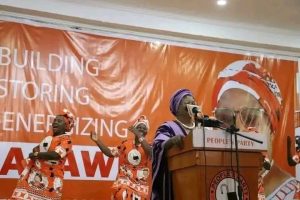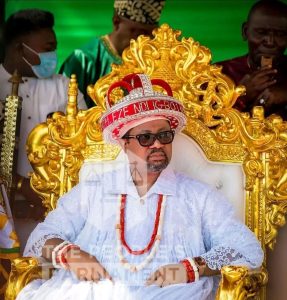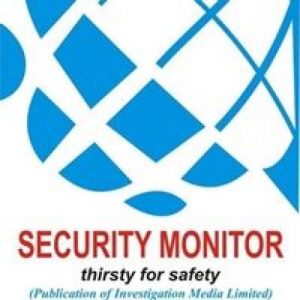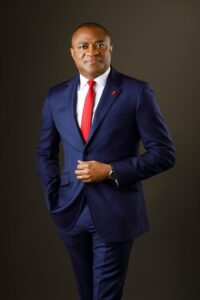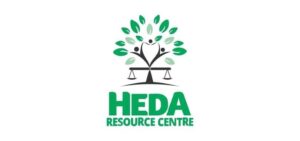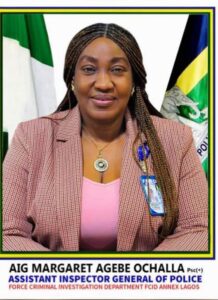Social Media is the Most Viable Tool For Campaign, says JODER Exec. Dir. Adeoye
A veteran Journalist and Executive Director, Journalists for Democratic Rights, (JODER) Adewale Adeoye has reaffirmed the need for proper use of social media for peace and conflict prevention. Adeoye who drop this hint at the Bloggers’-Online Publishers Summit held at the International Press Centre, (IPC) on Thursday, June 29, 2017, noted that social media could be a tool in the hands of unpatriotic elements if not properly harnessed. Below is the full text of his speech as captured by Wale Abideen, SECURITY MONITOR Managing Editor who was at the summit:
Ladies and Gentlemen
I welcome you to this historic summit. There is no doubt that since formal journalism began in 1859 in this part of the world, the media has never witnessed the current revolution owing to the tidal waves of the social media. In the past, we were enslaved by media institutions owned by the government. But as democracy deepens, free speech and liberty took the center stage leading to the advent of private print and electronic media.
The revolution in the social media is perhaps one of the most astonishing developments of the 21st century. Every country is accessible no matter the walls that may have been built. Fortresses of dictatorship and tyranny have been broken down by the social media. There no need for visa for the social media to carry out sorties on nations. The border of communications has been broken, barriers surmounted and there is no longer hidden save havens for governments and individuals that used to tke the people for a ride.
About two decades ago, Nigerians depended on the conservative print and electronic media to air their views. The competition was stiff. Opinions and ideas of people could not be captured due to limited spaces and the stiff struggle for accommodation by the editors. The rich, the powerful and the poor and vulnerable communities that also want their views to be heard had to compete to the disadvantage of the poor. Across the world the social media is becoming the most viable tool for campaign for political and economic representation, knowledge and technology drive and in some instances it has become a tool to fight and bring down dictatorial regimes.
The social media has come to stay. It is a whirlwind that no one will be able to stop. But it is also a movement that must consistently examine and re-examine her roles in the world of today.
However, the social media is not restricted to those who need it to make positive changes. It is a value-neutral organ that has been greatly explored by insidious movements across the world including being employed as a propaganda tool and harbinger of mischief.
The social media has the following attributes
- Greater outreach: Access to millions of people all over the world. The world had come to accept the reality of the social media as one of the most potent means of mass communication in today’s world.
- Ability of publishers to set up online media for parochial interests like ethnic, religious, political social or for financial gains. Increasingly, we have seen publishers setting up medium to further primitive interests that run contrary to the principles of journalism.
- Instant information for the general public. Online media has the unique advantage of being able to reach the larger public within the shortest time possible.
- Potential to sway public opinion. In our age, the social media has become a potent weapon for public moblisation for particular objectives.
- The choice to ignore professional ethics. Because of the legal status of on line media, some of them seem to ignore the rules of professionalism which is not good for the media profession.
- Ability to stimulate stories and pictures skewed for narrow prisms. We have seen stimulated pictures and video presented as facts when indeed they are false. The victims often lack the opportunity to be heard.
- Little financial input. The social media has a great advantage in the sense that it takes just a little capital to set up any online media.
- It addresses the missing gap left by the mainstream media.
- It empowers local communities. The online media have come to strengthen the voices of local communities; it provides opportunities for political and economic inclusion apart from creating the opportunities for local people to be heard.

Consequences
- Public information is distorted for individual interest rather than for public good. There have been various reports in the social media often written without respect for the rules of journalism.
- The potential of fanning the embers of conflict and disorder without sanction. Given the nature of online publications, when conducted in unprofessional manners, it could fuel ethnic discord and even violence across the country.
- Can promote spontaneous conflict or riots. Spontaneous reports can lead to spontaneous public reactions based on the reports in the social media.
- Loss of credibility which affects public perception of the medium if it reports news that are untrue, that lack objectivity and fairness. A medium that is noted for disseminating falsehood is most likely to the plagued by poor public perception, disrespect and eventually the total loss of credibility.
- Loss of credibility of the publishers if the reports of the particular medium are consistently found to be false of manipulated. Individuals behind the scene may face crisis of reputation. For anyone that cares about its future, there should be some elements of dignity in the way we report and disseminate information.
- Risks to personal lives and consequent public disdain against the operators of the medium. Nigeria is increasingly becoming a violent country. Credible media are being singled out as targets. The difference is that a discredited medium is most likely to face the challenge of public empathy.
Opportunities
- We should try as much as possible to promote public good. The social media has the responsibility to compete on a higher moral plane with the mainstream media.
- Set Agenda. The social media should be an instrument to set the agenda of national discourse. At present Nigeria is passing through difficult moments regarding the unity and prosperity of the country. The social media intervention is crucial to the wellbeing of the people and the country at large.
- Avoid sensationalism and unprofessional conducts. Social media should not cast itself in the image of the maestros of unfounded stories. It should not be the culture of the citizenship media to write just anything that comes its way. It means we must ensure professional gatekeepers are employed to do the job using the best possible international standards.
- Democratic ills should be fought using the social media: We can turn around the fortunes and misfortunes of Nigerians using the social media.
- Social media should be a tool of empowerment of the voiceless majority. There are millions of people that have no access to the mainstream media yet these people are eager to be heard, they have amazing stories to tell the world, of their travails and triumphs.
- Social media should deepen public discourse and entrench the pillars of democracy. We often handle the social media as if it has to do with quick fix,that investigative stories and well researched papers are meant only for the mainstream media.
Identified Conflict template in Nigeria
- Boko Haram: Sharia. Self-actualization. Religion. Exclusion. Poverty. Lack of Access to political and economic power. Lack of Engagement.
- Violent Herdsmen: Culture. Grazing. Civilisation. Migration. Access to resources.
- Violence: Poverty. Greed. Access to illicit weapons. State sponsored violence.
- Arms Proliferation: Maghreb crisis. Middle-Belt. Politics and Elections. Ethnic Rivalry. Lack of a honest Amnesty programme.
- Ethnic conflict: Self Determination. Political Exclusion. Self-fulfillment. Poverty. Weak political institutions.
What is to be done?
- We are here to share experiences with you. We want to learn from you. We also wish you may be comfortable listening to our own stories.
- We need to agree on whether we want the social media for the good or bad of the greater society.
- We need a consensus on truth and objectivity.
- We need to agree on using the social media to enhance the power and voices of the people
- We need to look at the social media as a tool to break or make, to batter or build, to run or to walk, to unite or to destroy. In all, our service as journalists should be for the happiness of the greater number for the greater good.

